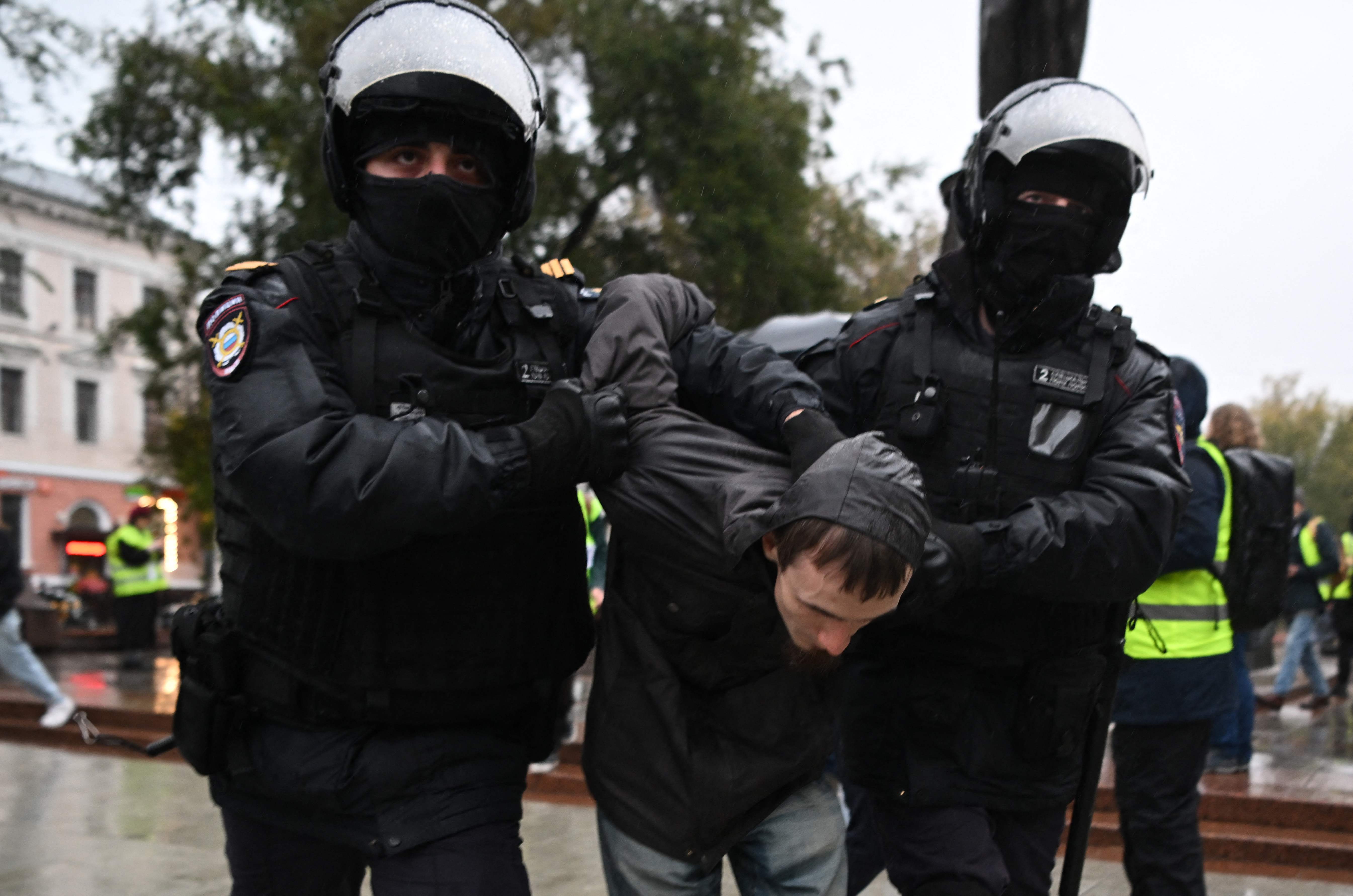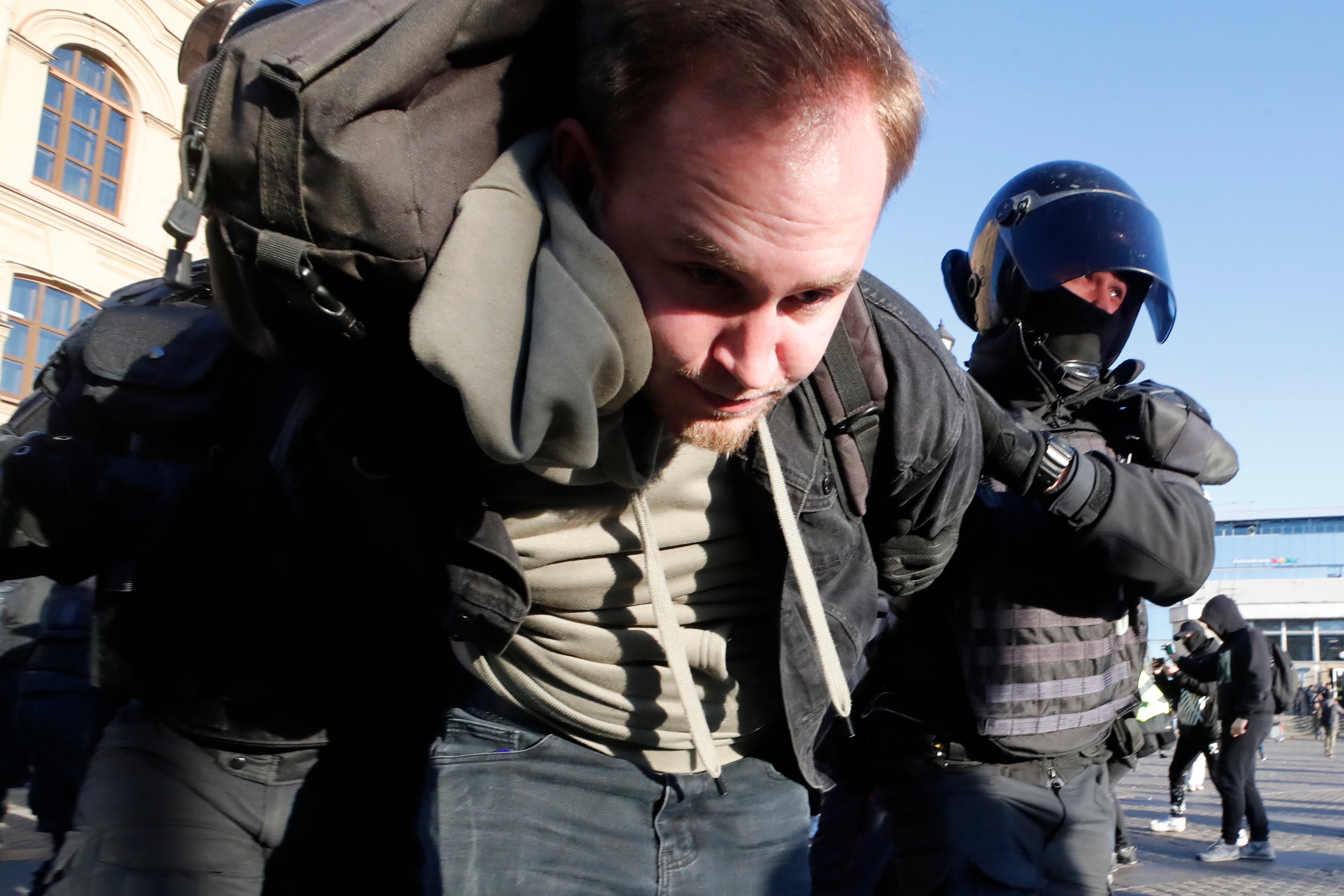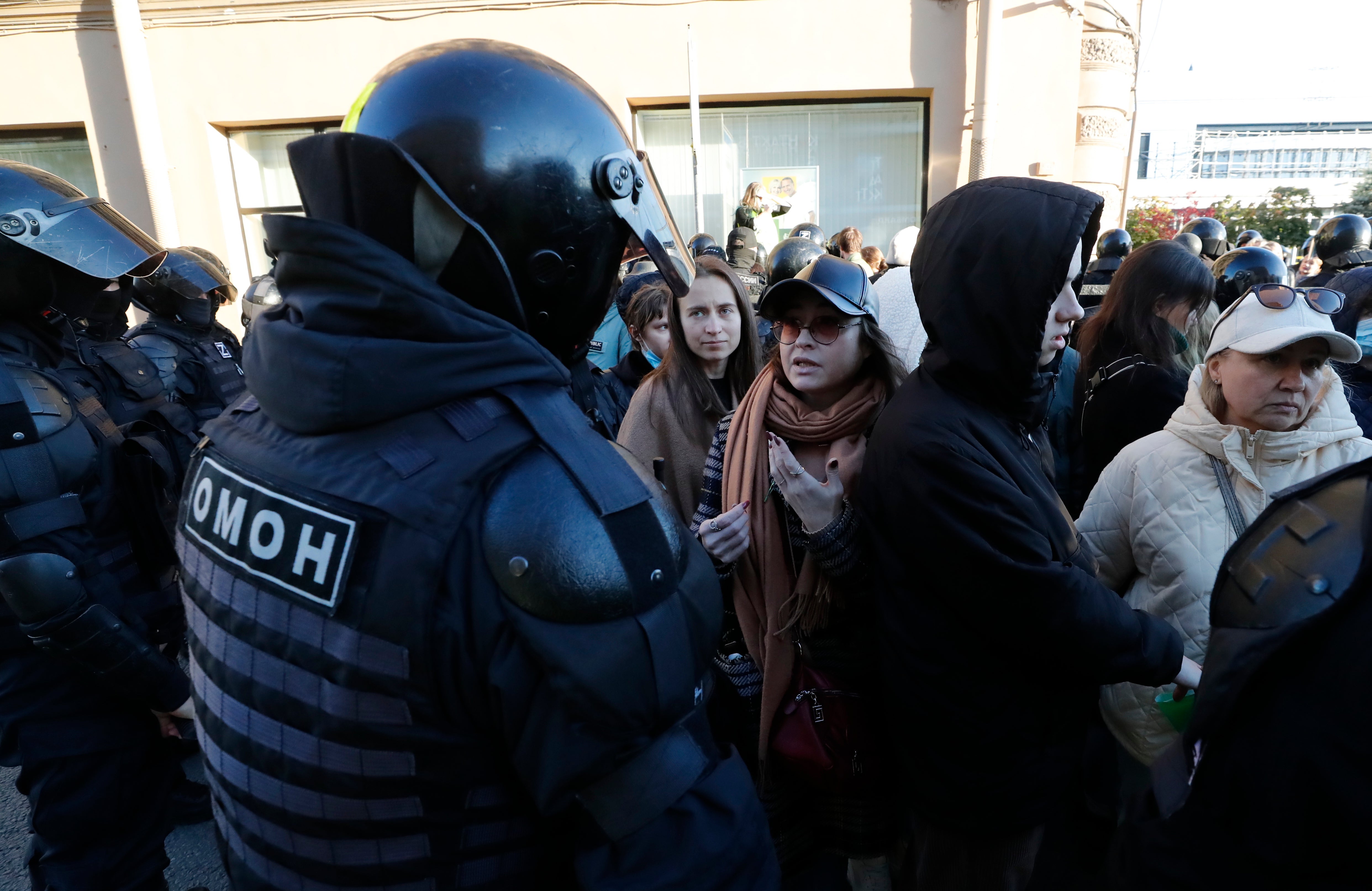Children among hundreds arrested in Russia after second wave of anti-war protests
Protesters shouted ‘we are not cannon fodder’
Your support helps us to tell the story
From reproductive rights to climate change to Big Tech, The Independent is on the ground when the story is developing. Whether it's investigating the financials of Elon Musk's pro-Trump PAC or producing our latest documentary, 'The A Word', which shines a light on the American women fighting for reproductive rights, we know how important it is to parse out the facts from the messaging.
At such a critical moment in US history, we need reporters on the ground. Your donation allows us to keep sending journalists to speak to both sides of the story.
The Independent is trusted by Americans across the entire political spectrum. And unlike many other quality news outlets, we choose not to lock Americans out of our reporting and analysis with paywalls. We believe quality journalism should be available to everyone, paid for by those who can afford it.
Your support makes all the difference.Hundreds of people, including some children, have been arrested in Russia as protests persist against president Vladimir Putin’s military mobilisation order.
Police descended on campaigners, arresting hundreds in several cities in the nationwide demonstrations.
More than 700 people were detained, including over 300 in Moscow and nearly 150 in St Petersburg, according to OVD-Info, an independent website that monitors political arrests in Russia. Some of those arrested were minors, OVD-Info said.
The demonstrations followed protests that erupted within hours on Wednesday after Mr Putin, in a move to beef up his volunteer forces fighting in Ukraine, announced a call-up of army reservists.
In Moscow on Saturday, a heavy contingent of police roamed a downtown area where a protest was planned and checked the IDs of passersby. Officers rounded up those they deemed suspicious.
A young woman climbed on a bench and shouted, “We aren’t cannon fodder,” before police took her away.
In St Petersburg, small groups of demonstrators managed to gather and shout protest slogans before being rounded up.
Russia’s defence ministry said around 300,000 people would be summoned to active duty, but the order left a door open to many more to be called into service. Most Russian men aged 18-65 are automatically counted as reservists.

On Saturday, police deployed in force in the cities where protests were scheduled by opposition group Vesna and supporters of jailed opposition leader Alexei Navalny. They moved quickly to arrest demonstrators, most of them young people, before they could hold protests.
In the city of Novosibirsk in eastern Siberia, more than 70 people were detained after singing an innocuous Soviet-era song praising peace. In the Siberian city of Irkutsk, police handed summonses for military conscription to men who took part in a protest.
People who tried to hold individual protests that are allowed under Russian law also were detained.
The police action followed the dispersal of Wednesday's protests when over 1,300 people were detained in Moscow, St Petersburg and other cities.

Mr Putin on Saturday signed a hastily approved bill that toughens the punishment for soldiers who disobey officers' orders, desert or surrender to the enemy.
The protests came on top of thousands of people trying to flee the country after Mr Putin ordered his call-up earlier in the day.
Large numbers of Russians rushed to book one-way tickets out of the country while they still could. Flights filled up quickly and the prices of tickets sky-rocketed, apparently driven by fears that Russia’s borders could soon close.

Reports of panic spreading among Russians soon flooded social networks. Anti-war groups said the limited plane tickets out of Russia reached inflated prices due to high demand and swiftly became unavailable.
Charles Michel, the president of the European Council, urged Europe to show an “openness to those who don’t want to be instrumentalised by the Kremlin”, according to Politico.
The remarks came following Mr Michel’s address at the United Nations general assembly in New York on Friday, and come ahead of a key meeting of EU ambassadors on Monday within the framework of the EU Integrated Political Crisis Response (IPCR).

Join our commenting forum
Join thought-provoking conversations, follow other Independent readers and see their replies
Comments